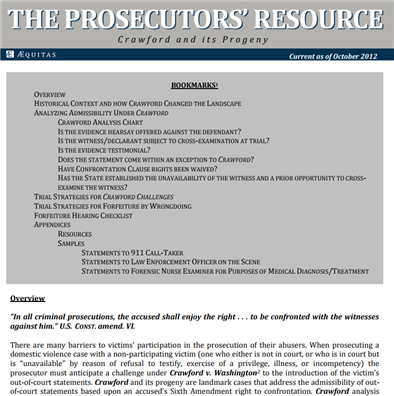The Prosecutors' Resource: Crawford and its Progeny
There are many barriers to victims’ participation in the prosecution of their abusers. When prosecuting a domestic violence case with a non-participating victim (one who either is not in court, or who is in court but is “unavailable” by reason of refusal to testify, exercise of a privilege, illness, or incompetency) the prosecutor must anticipate a challenge under Crawford v. Washington to the introduction of the victim’s out-of-court statements. Crawford and its progeny are landmark cases that address the admissibility of out of-court statements based upon an accused’s Sixth Amendment right to confrontation. Crawford analysis applies with equal force to the State’s introduction of out-of-court statements by non-victim witnesses, and it therefore has implications for the admissibility of forensic evidence, generally requiring the in-court testimony of the analyst who actually performed any examinations or testing procedures.
Provider: AEquitas
Publication Date: October 2012
